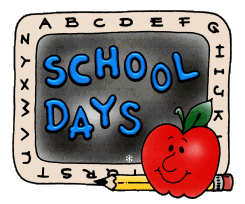
Funding: No Child Left Behind gives school districts more money. In fact, President Bush and Congress are spending more money than ever before on the education of America's children.
Flexibility: "No Child Left Behind" gives states and school districts more control and more flexibility to use resources where they are needed most. Principals and administrators will spend less time filling out forms and more time helping your child learn.
Accountability: "No Child Left Behind" holds schools and school districts accountable for results. Schools are responsible for making sure your child is learning.
School District Report Cards: "No Child Left Behind" gives parents report cards so they can see which schools in their district are succeeding and why. With this information, No Child Left Behind gives parents, community leaders, teachers, principals, and elected leaders the information they need to improve schools.
Public School Choice: "No Child Left Behind" may let you transfer your child to another public school if the state says that your child's school is "in need of improvement." Your school district may pay for transportation for your child. Contact your child's school district to find out if your child has this opportunity.
Extra Help with Learning: "No Child Left Behind" may also provide your child with free tutoring and extra help with schoolwork if the state says your child's school has been "in need of improvement" for at least 2 years. This extra help is often referred to as Supplemental Educational Services. Contact your child's school district to find out if your child qualifies.
Parental Involvement: "No Child Left Behind" requires schools to develop ways to get parents more involved in their child's education and in improving the school. Contact your child's school to find out how you can get involved.
Measuring Knowledge: "No Child Left Behind" requires states to test your child in reading and math every year in grades 3-8. Your child will also be tested at least once in high school. The tests will help you, your child, and your child's teachers know how well your child is learning and when he or she needs extra help.
Scientifically Based Research: "No Child Left Behind" focuses on teaching methods that have been proven by research to work. There will be no more experimenting on children with educational fads.
Reading First: "No Child Left Behind" provides more than one billion dollars a year to help children learn to read. Reading First is the part of "No Child Left Behind" that is dedicated to ensuring all children learn to read on grade level by the third grade. Reading First provides money to states and many school districts to support high quality reading programs based on the best scientific research. Contact your child's school district to find out if its reading program is based on research.
Teacher Quality: "No Child Left Behind" provides funding to help teachers learn to be better teachers.

Terms Every Parent Needs to Know
Title I
This is the part of "No Child Left Behind" that supports programs in schools and school districts to improve the learning of children from low-income families. The U.S. Department of Education provides Title I funds to states to give to school districts based on the number of children from low-income families in each district.
State Assessments
This refers to the tests developed by your state that your child will take every year in grades 3-8 and at least once in high school. Using these tests, the state will be able to compare schools to each other and know which ones need extra help to improve. Contact your child's school or school district to find out more details about your state's tests.
Adequate Yearly Progress (AYP)
This is the term "No Child Left Behind" uses to explain that your child's school has met state reading and math goals. Your school district's report card will let you know whether or not your child's school has made AYP.
School in Need of Improvement
This is the term "No Child Left Behind" uses to refer to schools receiving Title I funds that have not met state reading and math goals (AYP) for at least two years. If your child's school is labeled a "school in need of improvement," it receives extra help to improve and your child has the option to transfer to another public school, including a public charter school. Also, your child may be eligible to receive free tutoring and extra help with schoolwork. Contact your child's school district to find out if your child qualifies.
Supplemental Educational Services (SES)
This is the term No Child Left Behind uses to refer to the tutoring and extra help with schoolwork in subjects such as reading and math that children from low-income families may be eligible to receive. This help is provided free of charge and generally takes place outside the regular school day, such as after school or during the summer.
Highly Qualified Teacher (HQT)
This is the term "No Child Left Behind" uses for a teacher who proves that he or she knows the subjects he or she is teaching, has a college degree, and is state-certified. "No Child Left Behind" requires that your child be taught by a Highly Qualified Teacher in core academic subjects.
 Print
Print Email
Email







